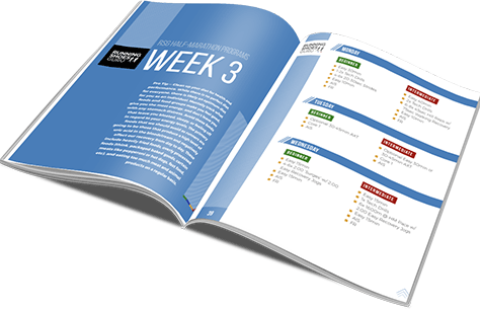5 Tips to Improve Your HRV Score
Need some basic tips you can use TODAY to boost that HRV score? Look no further!


If you need a refresher, you can check our article on what is HRV, why it is important and what factors influence it.
But in short, HRV measures the fluctuations between heart beats. A high HRV score signals that your ‘rest and digest’ response is functioning well. Whereas a low HRV score can highlight that your ‘fight or flight’ response is activated.
Here are 5 tips you can implement today to improve your HRV score.

If you’re not training for an event you might fall into the trap of a ‘no days off’ mindset, so let’s nip that in the bud right now. Schedule some days off exercise or better yet some active recovery workouts if, mentally, you need to move.
If you’re training for a half marathon or more, it’s important to take note and adhere to the scheduled rest days in your training plan.
They’re not there just to fill the box, they’re there to make sure your body has sufficient time to recover before going again.
Some watches’ HRV readings might suggest you should ‘rest or train light’ although you have a long run planned.
It’s more than okay to swap the days over, be flexible in your training approach. You can go walk the two-hour route instead of running, or you can take today off and put the long run in a day or two time.
Without rest, you are risking injury, illness, and feeling sluggish and irritable. So a few days off after a good block of training won’t hurt.
Start an eating journal, not to count calories but to understand if you’re eating a healthy balanced diet.
Are you eating enough? Are you going long hours without a snack? Are you eating protein after a workout? What do your training snacks look like?
Get serious about your nutrition and the whole game changes. I personally find it hard to boost my food intake at the beginning of a training plan, so I have to make a conscious effort to eat more in the initial weeks before it comes into a habit. Otherwise, by week three I’m burned out and struggling to get out of bed… and you will too.
By giving your body the energy it needs to function and cope with more training means it can function better, making running easier.

Everyone seems to forget this one. Hydration is key. It helps your circulatory system, making it easier to pump blood and oxygen around your body – believe it or not, this can have a direct impact on training, health and overall stress levels!!
Did you know that alcohol’s adverse effects on the body can last for as long as five days? This means it can affect your HRV score for longer than we would prefer, right? Drink in moderation or better yet ditch it altogether if you want to improve your score ASAP.
Just like training. You won’t get fit with one run and you won’t lose fitness in one rest day.
Your body will cope better when you’re consistent and that goes for a lot of things: time of day you workout, same wake-up schedule, eating well, drinking the same amount of water day to day – that goes for weekends too! Not just your Monday-to-Friday life.
Do you keep track of your HRV? Have you implemented any habit in order to improve it? Let us know in the comments!







